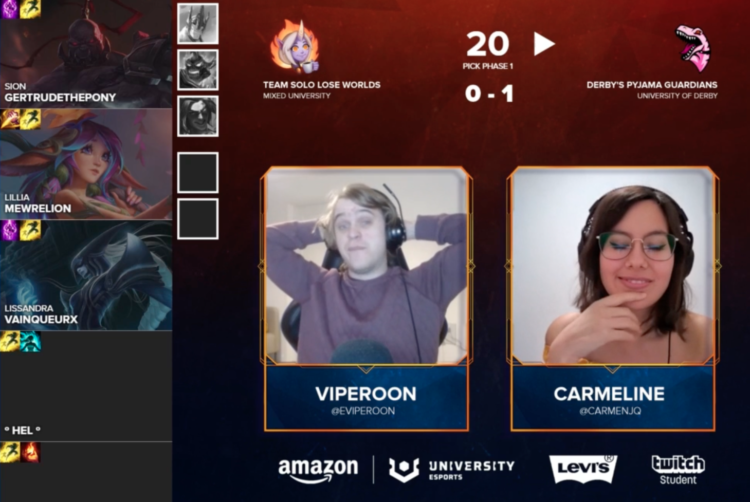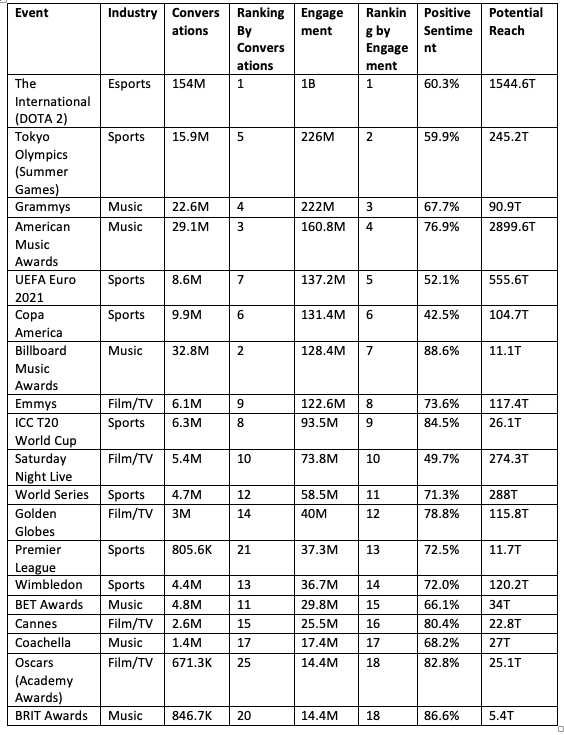Esports are a global media phenomenon. But where are the brands?

Opinion
Esports can no longer be ignored by advertisers and there are five important reasons why.
Rather than a gradual process over time, social and media trends are more like giant leaps followed by periods of consolidation.
Often these leaps occur around key sporting and cultural events within the calendar, which act as catalysts for conversations on key issues or for the adoption of new media consumption behaviours.
Think the Oscars for the #MeToo movement, the European Championships for Black Lives Matter and the widespread adoption of subscription video on demand (SVOD) during the Covid-19 pandemic.
Over the next year our media agency team plans to focus on a number of key events, exploring the key conversations around them and what that means for brands, while also exploring how other events are at the forefront new media behaviours and can be seen as predictors for the future.
For now we are looking back at 2021. Our partners at Talkwalker have provided a list of the top events of 2021 based on social conversation and engagements.

At first glance the list demonstrates the emergence of esports as a global phenomenon, with events such as the world championship “The International” (Dota 2) claiming first position among the most prestigious 2021 events for both mentions and engagement on Twitter.
The sheer size of conversations around esports show that marketers can no longer ignore the opportunity the industry provides.
With an audience already bigger than Major League Baseball, the total viewership of esports is forecasted to grow to 577.2 million and revenues to reach almost $1.6bn by 2024.
Simultaneously, time spent consuming esports is expected to continue growing, having increased by 7.6 billion hours between from 2019 to 2020 alone.
Yet, not all brands are on board when it comes to sponsoring within the esports industry – although non-industry native companies such as Levi’s or PepsiCo have gotten involved more recently. Apprehension to invest is often fuelled by a deep respect for but also incomprehension of the industry, its audiences, and processes.
Here are 5 reasons why brands should invest in esports now.
Esports is quick to adapt to new situations
The Covid-19 pandemic has impacted every aspect of our life. And while it is undeniable that the pandemic also affected esports negatively, disturbing ticket revenue and merch sales, it adapted more quickly and more efficiently to the new reality than other industries, supported by its already social nature and technological accessibility in place beforehand.
Gaming and gamers have moved into the mainstream
With the mainstream media picking up gaming – Netflix shows such as Arcane and the Witcher or the airing of the Overwatch League playoffs on Disney Entertainment Channel – gone is the stereotype of the gaming nerd. Instead, also thanks to the popular twitch streamers and content creators, society is starting to realize and appreciate the skills needed to be a successful gamer: concentration, reaction, and logical & tactical thinking.
Gaming is no longer just for the young and rich
Increased technological capabilities on both smartphones and PCs have made gaming more accessible than ever – anyone can watch and participate without spending copious amounts of money. Thus, it is not surprising that according to the Deconstructing Mobile & Tablet Gaming report by the NPD Group, American and Canadian mobile gamer population soared by 12% since 2019 with 65% of the entire population now playing mobile games. On PC, the rise of free-to-play games, such as Fortnite or League of Legends, further pushes this overall growth, solely requiring a stable internet connection.
Gaming audiences are diversifying
The technological accessibility also has a knock-on effect on audience growth and diversification. With money no longer a decisive factor, gamers aren’t just affluent, young males. Female gamers for example are on the rise, already making up 35% of esports players ( – variations depending on game played) and female streamers such as Pokimane continue to grow in popularity with 8.3M followers to date.
Gaming influencers hold huge power
Lastly, the gaming community is highly interactive. Viewers, streamers, game developers, and gamers are in constant contact to improve experiences. There is thus a strong appreciation of the community, but also a feeling of ownership and proximity between the professionals and viewers, something we do not see in other sports. Casual gamers have the opportunity to watch and learn streamers and pro players, with the potential to pave themselves a way into the pro leagues.
***
There are plenty of ways businesses unrelated to gaming can engage. The esports ecosphere consist of various participants, such as (professional) gamers, event organizers, and viewers to name a few. These different groups and their subgroups need to be carefully considered and segmented to be successful. For all groups however, brands need to add value to the industry and show their efforts in understanding and supporting the individuals within it.
Within the last few years, Levi’s has forayed into esports through different partnerships. In July 2020, the “Esports Collective supported by Levi’s” was launched, a cooperation between the fashion brand and the DACH region Prime League – a League of Legends competition. Output of the partnership was mostly seen in activation.
The same year, Levi’s collaborated with UK-based NUEL (pictured, main image), an esports organiser, acting as the main sponsor of the Winter 2020 season. And last year, Levi’s then also broke into the US esports market with NRG, financing clothing for their players, as well as being part of their custom content creation.
If done right, both sponsorships and advertising at events are ways for brand to receive impactful screen time. 90% of Twitch esports fans recall at least one non-gaming sponsor they have seen within esports.
This is coupled with high levels of positive sentiment and sponsor popularity – more so than is the norm in other sports – thanks to the authenticity and inclusivity associated with the gaming industry.
Dr Hannah Gringard is insights manager at OMD EMEA. With insights from Caterina Pace, insights executive at OMD EMEA, Peter White, executive director, OMD EMEA, and Tom Mellor, gaming lead at Fuse




